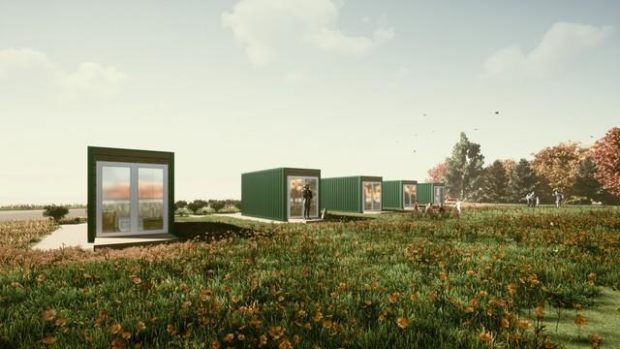Old shipping containers could be transformed into “unique” tourist accommodation in the north-east countryside.
Plans have been submitted to Aberdeenshire Council seeking permission for the five glamping units at Hillhead Of Teuchar, Cuminestown.
A planning statement by Cooper & MacGregor Ltd states that the development would create a “unique” attraction that would encourage new visitors to the area at a time when tourism tastes are changing.
‘Great’ way to recycle old containers
Speaking to the LDR Service, architect Bob MacGregor explained that the farmer who owns the land has already made some improvements to the site.
He said: “The applicant has turned his family farm into woodland walks open to the public which also feature wildlife ponds and native planting to encourage native birds and inspects to return to the area.
“The walks and information boards are used frequently by the local school and other groups.
“The proposed glamping site is in an area of the former farm land that, due to its position, is of no use for farming or to feature as part of the walks.
“The glamping units are to be constructed using shipping containers that were previously used to ship materials and machinery to the applicant and we see this as a great way to recycle them.”
Home comforts
The self-catering accommodation units would be created from modified shipping containers and have been designed to ensure visitors have access to essential facilities during their stay.
Each glamping unit will have a shower room with a toilet as well as a small kitchen area so guests can prepare and cook their own meals.
Access to the units will be available via glazed patio doors.
Similar scheme knocked back
Meanwhile, plans for four glamping pods at a north-east caravan park have been refused.
Sandend Holidays had applied to Aberdeenshire Council for permission to build the pods and cycle storage at Sandend Caravan Park near Portsoy.
Council planners refused the plans as they said it was not in accordance with the Aberdeenshire Local Development Plan and a flood risk assessment had not been submitted to prove the site was not at risk of flooding.
The business owners had hoped to receive permission to “adapt” to the changing tourism market.
The proposed glamping pods were designed for short-term accommodation.
